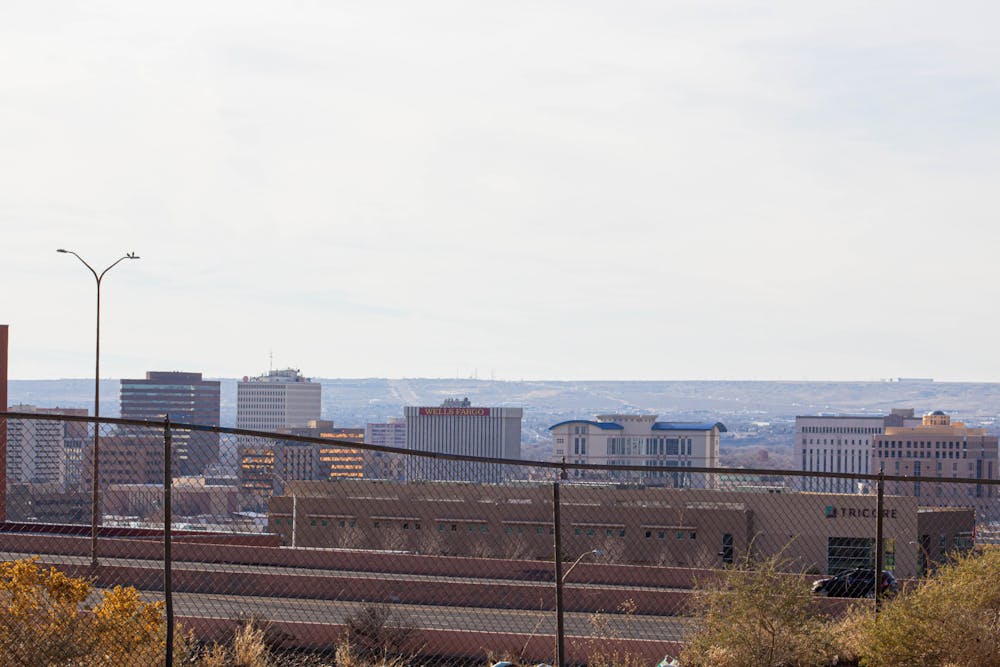The First Judicial District Court has granted the Albuquerque-Bernalillo County Air Quality Control Board a preliminary injunction until the legality of the case is decided at the next scheduled hearing.
A preliminary injunction will allow the Air Board to revert to the status quo and continue to operate as it had before the Albuquerque City Council approved an ordinance and resolution that substantially changed the Air Board in November.
“I so find that the Air Board is likely to prevail ultimately on this, and I do have concerns about allowing a situation to proceed that may be unlawful,” District Court Judge Francis Mathew said in the ruling.
To be granted the preliminary injunction, the Air Board needed to prove to the judge that they would suffer irreparable harm from the implementation of the ordinances. Irreparable harm is harm or injury that cannot be adequately compensated by monetary rewards, according to Cornell Law School.
The Air Board, and what’s happened since November
The Air Board was created through the New Mexico Air Quality Control Act and the federal Clean Air Act to regulate air pollution in both the City of Albuquerque and the County of Bernalillo under joint authority, according to the City of Albuquerque’s website.
Composed of seven voting members — four chosen by the City and three by the County with specific qualifications — the Air Board regulates by serving both legislative and judicial capacities: creating air quality rules that ensure compliance with state and federal law and reviewing air quality permit appeals, according to the City of Albuquerque’s website.
On Nov. 8, City Council approved ordinances that abolished the Air Board and recreated it, terminating city-appointed members. During that same meeting, City Council approved a resolution to establish a moratorium to halt the Air Board’s actions until February. The County was not included in these decisions, according to the Daily Lobo and court documents.
Mayor Tim Keller vetoed the legislation Nov. 22, which the City Council overrode Dec. 4 – passing the abolition, recreation and moratorium. This prompted the Air Board to file a lawsuit against the City on Dec. 5, requesting a preliminary injunction, as reported by the Daily Lobo.
Arguments in court on Thursday
The preliminary injunction hearing did not decide the legality of the City Council’s ordinance and resolution; the hearing decided to halt the implementation of them to allow time for the courts to determine if the City's legislation was legal.
Antoinette Sedillo Lopez, the Air Board’s attorney and Ken Martinez, the County's attorney, argued at the hearing that terminating the city-appointed Air Board members and not allowing the Air Board to meet quorum constitutes an emergency, as there is no functioning Air board.
Get content from The Daily Lobo delivered to your inbox
“(The) emergency here is that there is no board today. And the emergency here is the board is being asked to do things – to hear a permit appealed, to hear a motion for a stay – that they cannot do,” Sedillo Lopez said.
The City holds that their decision to implement the resolution and ordinance was legal and created no emergency — which is needed to issue a preliminary injunction — as argued by their attorney Randy Autio at the hearing.
“We, as an authority, have the choice to continue to participate in this arrangement if we choose, and under what conditions or not,” Autio said.
Several legal questions will be argued at the next hearing, as outlined in the court documents and raised at the hearing, including whether the City Council had the right to act without permission of the County; whether the resolution was enforceable; whether the termination of the Air Board members was legal; whether the City illegally interfered with the Air Board’s rule making and the compliance with state and federal air quality laws.
Maintaining the status quo will allow for the Air Board to continue operating as it did before City Council’s November legislation if the Court finds the City Council's actions were unlawful, Sedillo Lopez said.
“This is particularly important because the ordinance was passed specifically to interfere with rulemaking,” Lopez said.
Maddie Pukite is the editor-in-chief at the Daily Lobo. They can be contacted at editorinchief@dailylobo.com on Twitter @maddogpukite
Nate Bernard contributed reporting to this article.
Maddie Pukite is the 2023-2024 editor of the Daily Lobo.






